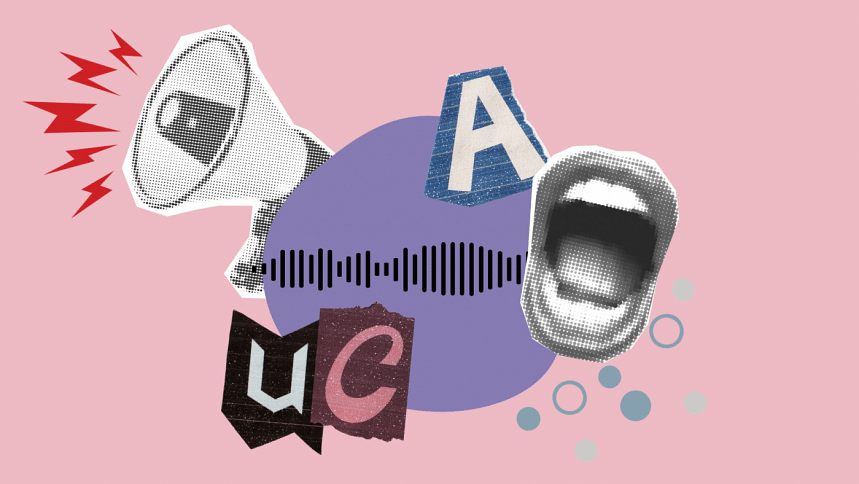How to overcome the fear of public speaking

If your palms are sweaty, knees weak, arms are heavy every time you speak in front of a crowd, you're not alone. About 25 percent of people suffer from glossophobia, the fear of public speaking, making it one of the most common phobias. Yet, public speaking remains a valuable and often indispensable skill in almost every sphere of our lives, whether that be presenting our master's thesis or delivering a moving speech for our best friend's wedding.
Glossophobia is essentially a form of performance anxiety: just as we are afraid to sing off-key on stage, we're afraid of stumbling on our words and being humiliated by others. As social creatures, it is a basic instinct to seek validation from our fellow human beings. Naturally, the fear of messing up in front of them and being mocked and belittled as a result is very potent.
Thus, the first step to overcoming this fear is recognising it is irrational. While we may hyper-fixate on the way we say things in our head, most people notice or care very little, instead choosing to focus more on what we say. Given that a vast majority of people aren't articulate orators, a few awkwardly phrased sentences are expected. Try remembering the last time you saw someone having a verbal mishap in public – you probably can't.
However, knowing is not the same as believing; it has to be backed up with practice. Like any other phobia, the way to improve is through systematic desensitisation, which is a fancy way of saying just do it. By gradually exposing ourselves to scenarios where public speaking is required, we can incrementally convince our sympathetic nervous system– the part that triggers our fight-or-flight response– that crowds do not represent a threat, thus neutering the fear response.
It is important to go slow. Start with speaking in front of a mirror or video camera to get a feel for it. Then move on to small crowds of people you feel safe around, like close friends and family members, and keep scaling up. It's important to remember that progress is non-linear, so it's okay to settle back into more comfortable environments if you feel too overwhelmed.
Once you're somewhat used to the ordeal, joining activities which involve public speaking like debate and Model UN could be a great way to speed up improvement. Clubs and organisations provide communities that offer constructive feedback, opportunities for regular practice and positive encouragement. However, some organisations could also promote toxic competition, leading to a hostile environment that is counter-productive to progress. So, picking the right communities to join is crucial.
There are of course some neat tricks you can use to sidestep your anxiety and appear more confident. Before you deliver your speech, memorise it front to back. Then give mock speeches before different audiences to perfect your delivery. By the time you begin your real speech, you'll have entered a flow state where you're too focused on what you'll say next to even notice the crowd. On stage, try looking at an object like a clock or a door at the far end of the room or maybe find a familiar face and deliver the speech to them. This helps drown out the audience, allowing you to feel more comfortable.
Sometimes, the fear of public speaking coincides with other psychological issues such as anxiety. In these more extreme cases, seeking professional advice is a more optimal solution. However, never resort to any medications without consulting a psychiatrist first as they can have unintended consequences if consumed without a prescription.
While public speaking is important, it's not the end of the world to not be the best at it. In the end, all that matters is that you're confident in your own skin and can communicate effectively with others. Eloquence is just an optional cherry on top.
Robiah is a former A-Levels student of Mastermind English Medium School

 For all latest news, follow The Daily Star's Google News channel.
For all latest news, follow The Daily Star's Google News channel. 









Comments